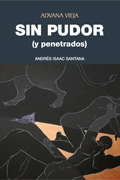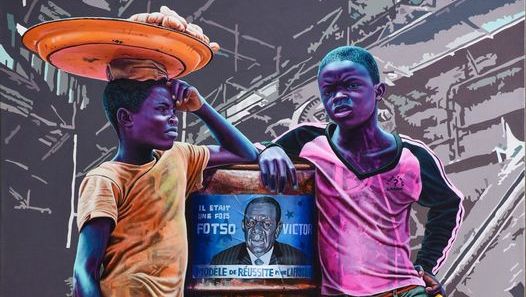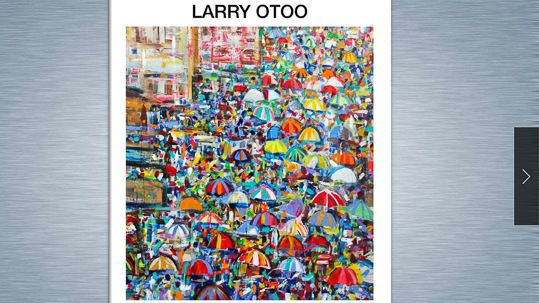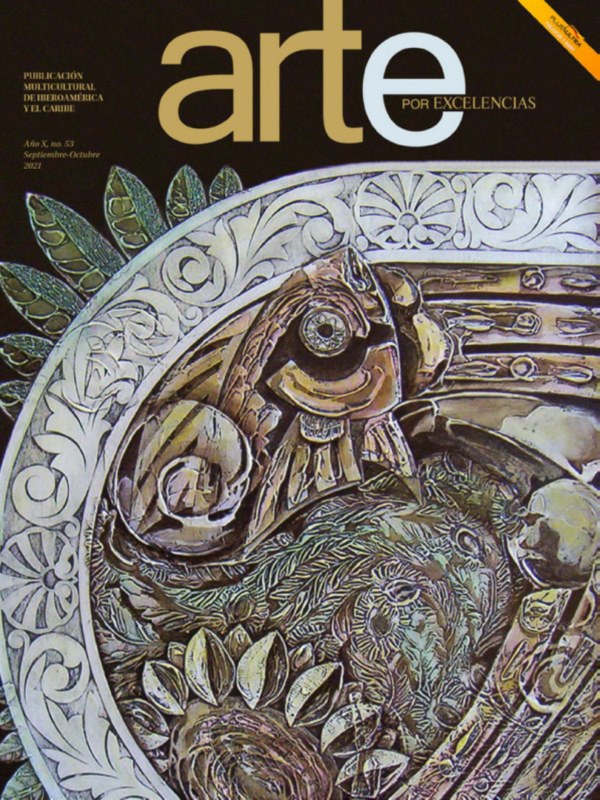
With forewords by renowned art critic and theoretician Fernando Castro Florez, and prefaced by Maria de los Angeles Pereira, a professor of Art History at the University of Havana, Sin pudor (y penetrados), the new book by Madrid-based Cuban essayist and curator Andres Isaac Santana has just been put out.
According to Fabio Murrieta, director of the Aduana Vieja Publishing House, this is “one of the vastest compilations of texts and essayists from this author ever culled, a man who’s become one of the most critical, respected and recognized voices in the realm of today’s Latin American and Cuban arts. The volume scours not only one of the less authorized zones of Cuba’s contemporary art, but also a multitude of topics related to the visual arts in Latin America and elsewhere, including photography, filmmaking, video and the newest technologies. And all this much comes from an inclusive and horizontal perspective that mulls over the profitability and relevance of such concepts as hegemony, subordination, periphery or the controversial so-called “lateral subjectivities.” The volume also provides a personal approach to countless artists, either seasoned or emerging, yet each and every one of them determined to play a decisive role in the ongoing discourse of the contemporary arts.”
The book’s narrative layout, far from any echelon-oriented principle, is mapped out on the basis of two standalone and independent chapters. The first one gathers a number of texts that tackle –with a butting approach and certain amount of voyeurism- general phenomena linked to ruling esthetics and contemporary discourses that hit both the arts and the cultural rhetoric that build on the momentum of the so-called “democratic axiology.”
On the other hand, the second chapter delivers an exercise of interpretation that fits better and harbors itself in the dismantling of the linguistic and epistemological systems of very specific poetics that usually makes fun of any fixation to extremely orthodox structures, especially those that rule out dialogue and intentional approximation among well-established discourses and others that are deemed as marginal.
Sin pudor (y penetrados)–the author says- "is not precisely a book on contemporary art and its most extended practices. It’s neither a handbook of new theories nor an arrogant text that registers the application of that theoretical body –which is all the rage now- on the surface of certain kinds of artwork. Above all, it’s an excuse for writing and enjoying interpretation. Therefore, it’s all about a premeditated selection of free texts construed as an erotic alternative to dumbness, banality and savageness. This volume reveals itself as impulsive, delirious, subversive, concealed, probably swirly and many times baroque; yet it always puts on a wet face in the mirror of vulnerability and evanescence, marking off the boundaries of irony as an alibi and a luxury in itself, of certainty about everything and nothing in the same breath, of marble today and dust tomorrow.”
In his splendid forewords entitled Partial, Passionate and Political: Three Preliminary Notes on Critical Commitment¸Castro Florez stresses on the idea that “Andres Isaac Santana is not strictly speaking a novelist, even though his essays are to a good extent an extraordinary logbook. The key to disengagement and distance from the homeland, the lucid dissidence and his stance for differences have been the common denominator of a profoundly honest writer and his unquestionable expressive commitment. His critical work is an example of transverse and radical dialogue with complex essay matters, in many cases institutionally sidelined altogether. Right here, his essays take down the road to success rather than the path to defeat; the thinker gains consciousness in the metaphor of the drifting ship or in the so-called shell to the wind, a process that in no way assumes or means his surrendering to unease or to the return to the nihilist ashes. Drama and decadence are the socio-historic and personal context of the critique deployed by Andres Isaac Santana, a man who refuses to give up on his vocation, knowing that –as Maria Zambrano put it- there are odd exile gifts. Andres Isaac baptizes all these pages that are the bedrock of the turbulent experiences art is bound to endure in these times under the sign of the brazen. (…) Fortunately, Andres Isaac Santana perverts our alleged naivety and invites us to knock down the approved and inertia-driven authoritarian discourses. Now what’s missing is the immense pleasure of prying into a map that, in a Borgia-style fashion, is not about a territory but about a critic that ran through it and left his prints on it.”
Source: Press Release
Related Publications

Catalogue "Smiling and Suffering"
June 03, 2022
Catalogue Flower Power
December 01, 2021











